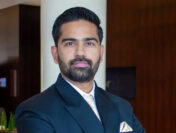I’ve had the pleasure of co-presenting a summary of ‘The Truth About Global Brands’ study at Dubai Lynx 2015 representing McCann Worldgroup, McCann Truth Central and FP7/MENA accompanying our Global Chief Strategy Officer, Suzanne Powers.
This was a substantial piece of research conducted via an online quantitative survey in 29 markets, including Egypt, the UAE and Turkey, with over 30,000 people. This quantitative research was supplemented by qualitative research in the form of focus groups, in-home ethnographies and paired in-depth interviews with cross-cultural couples. We’ve tried to get under the skin of how people all over the world feel about living in a more global world.
In addition, we were able to conduct a number of expert interviews with people outside of our industry as well as many CMOs. The issues we uncovered are expansive and complex. They point to the inherent contradictions, to the huge responsibility of shepherding a global brand today, the challenges of the new media landscape, and ultimately, the fear of what’s around the corner in such a rapidly changing world. Which is why this research was so important.
We shared a few provocations that resonated well from the feedback we received:
1. We spoke about the importance of creating work based on culture that travels our borders into other markets.
2. We shared how 81 per cent of people around believe that brands have the ability to make greater positive change than the government does. This rises to 85 per cent in the Middle East.
3. We introduced the concept of Deep Globality (patent pending as Suzanne stated!) i.e. the awareness of and efforts to thoughtfully spread a brand, idea or movement in a multi-market capacity while actively enriching the receiving culture.
4. We shared how having an additive role in local culture may sound like a ‘nice to have’ but in truth it is increasingly seen as a business imperative. From our discovery sessions, we saw how the lawmakers of many emerging markets are increasingly tired of global companies that enter their countries without improving the communities within which they work. As a PWC CEO report stipulated, “Catering for the needs of these local communities can protect a company’s ‘license to operate.’”
5. Finally, we left the audience with a provocation from Suzanne that I loved: What if brands acted like the World’s Best Houseguests?
Now, that’s an idea worth sharing.





